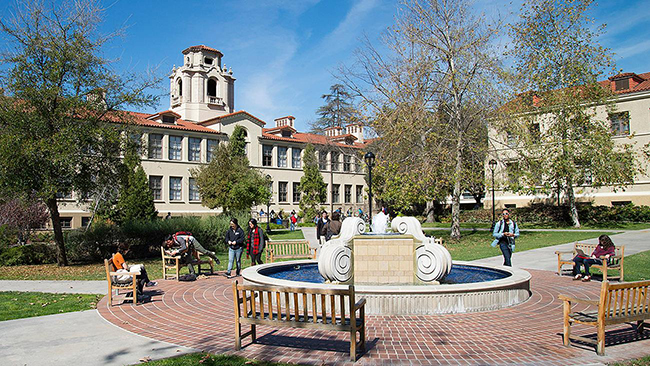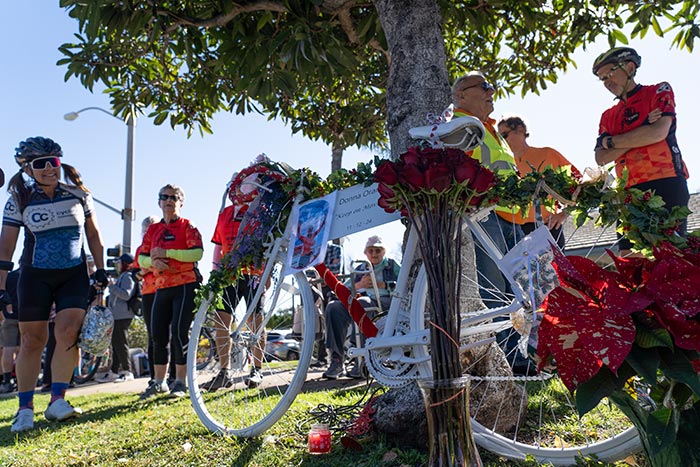Council votes bike-sharing back, add new priority goals
By Rebecca Norden-Bright
intern@claremont-courier.com
A bike-share program may soon be returning to Claremont streets. The city council on Tuesday adopted an ordinance amending the Claremont Municipal Code in order to establish a three-year shared mobility pilot program and added to the Council’s 2020 Priority Goals and Action Items initiatives addressing policing and local business challenges.
The ordinance establishing a shared mobility pilot program was pulled from the consent calendar for discussion by Mayor Larry Schroeder, and was approved 4-1, with they mayor voting against. Mr. Schroeder previously expressed opposition to these types of programs, voting on June 23 against participating in a regional bike-share pilot program sponsored by and funded through the San Gabriel Valley Council of Governments (SGVCOG).
During this meeting, Mr. Schroeder cited concerns about bikes left “strewn all over the place,” as the newspaper of the Claremont Colleges, The Student Life, reported on July 2.
In the past, the city has been hesitant to allow such shared mobility programs to operate in Claremont. A moratorium on vehicle rentals within the city was first put into effect in September of 2018 and is set to expire this September. Scooters have faced the most significant pushback because they are seen as an impediment to keeping sidewalks clear and a safety concern due to their speed.
Despite this concern, the council did endorse the shared mobility program coordinated by the SGVCOG, which plans to provide a minimum of 840 bikes in at least 15 participating cities, according to SGVCOG’s website, and would allow residents to travel by bike both in Claremont and the surrounding area.
City staff specified that although the ordinance allows for the possibility that other businesses, such as those providing electric scooter rentals, may be able to operate in the future, it does not expressly authorize any particular program. A business wishing to operate a scooter rental program in Claremont would still have to apply for a permit, and this ordinance does not oblige the city to grant permission.
“We did it in a way where it maintains maximum flexibility for different types of programs in the future, but it doesn’t approve right now any one program, whether it’s bikes or scooters,” said City Attorney Alisha Patterson. “That’s something that’s going to need to be done through a permitting process and the city can take or leave each program as it is presented to them.”
Mayor Pro Tem Jennifer Stark and Councilmember Jed Leano both expressed satisfaction with the new ordinance.
“[The ordinance] leaves the door open for us to deliberate this further if new information appears or a better possibility arises,” said Mr. Leano.
PRIORITY GOALS MID-YEAR UPDATE
The agenda for Tuesday’s meeting also included a review of the Council’s 2020 Priority Goals and Action Items Mid-Year Update. After hearing public comment from Claremont Change requesting that the goals be amended to include policing reform, the council decided to include it as an action item for the remainder of the year.
“I think that one major priority for the city should be implementation of policy that holds officers accountable for harassing people of color, not just from Claremont, but also our visitors,” said Josue Barnes, co-founder of Claremont Change, during public comment.
The council agreed and also decided to adopt an item aiming to work more closely with local businesses to support them through economic hardship, specifically by expanding Claremont’s Al Fresco program and extending the deadline for businesses to apply to participate.
Claremont City Manager Tara Schultz noted that both of these items had already been priorities for the city before but were not originally included on this year’s priority goals because the list was written in January.
“We had a small pandemic happen that kind of refocused our time and efforts on to things that obviously were more pressing, and in many cases far more important,” said Ms. Schultz. “On top of that, we’ve had some social issues that have come up with Black Lives Matter and some changes that obviously we’re going to be addressing that are important as we transition to a new version of community policing and dealing with mental health issues and things along that line.”










0 Comments